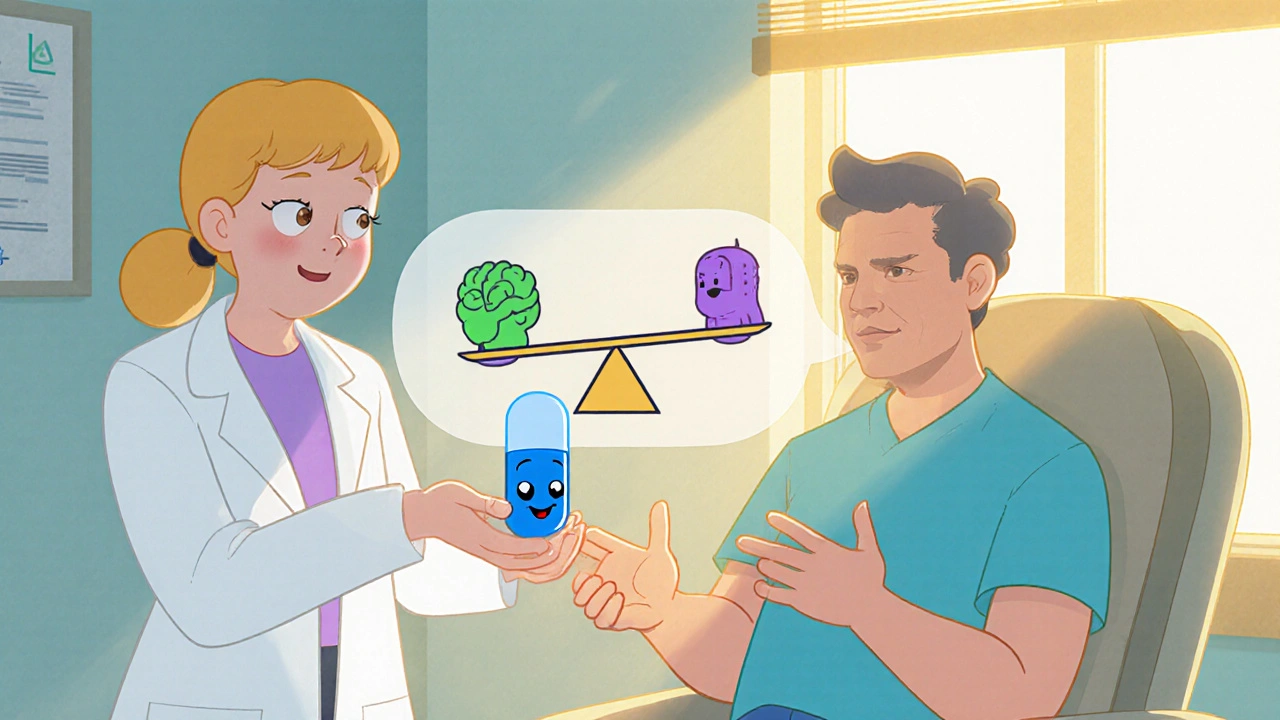Procyclidine: What It Is, How It Works, and What You Need to Know
When your muscles feel stiff, your movements slow down, or you get uncontrolled shakes from medication side effects, Procyclidine, a prescription anticholinergic drug used to treat movement disorders. Also known as cyclodol, it helps balance the chemicals in your brain that control motion. It doesn’t cure Parkinson’s or other conditions, but it can make daily life easier by reducing tremors, rigidity, and awkward movements caused by dopamine imbalance.
Procyclidine is often prescribed when other treatments don’t fully control side effects from antipsychotic drugs like haloperidol or risperidone. These medications can block dopamine too much, leading to symptoms that look like Parkinson’s — a condition called drug-induced parkinsonism. Procyclidine steps in to counteract that. It’s also used in true Parkinson’s disease, especially in younger patients, to help with stiffness and drooling. But it’s not for everyone. Older adults are more likely to have confusion, memory issues, or dry mouth from it, so doctors usually avoid it in that group.
It’s part of a larger family called anticholinergic medications, drugs that block acetylcholine, a brain chemical involved in muscle control and memory. Other members include benztropine and trihexyphenidyl. These drugs all work similarly, but each has different side effect profiles and dosing rules. What’s important to know is that long-term use of anticholinergics like Procyclidine has been linked to higher dementia risk, especially in people over 65. That’s why doctors now try to use the lowest dose for the shortest time possible.
If you’re on Procyclidine, you’re probably also dealing with something else — maybe Parkinson’s, schizophrenia, or a reaction to another medicine. That’s why the posts below cover related topics like how anticholinergic drugs affect thinking, what alternatives exist, and how to safely reduce or stop these medications. You’ll also find comparisons with other movement disorder treatments, tips on managing side effects like dry mouth or constipation, and real-world advice from people who’ve been there.
Procyclidine isn’t a magic pill. It’s a tool — useful in the right situation, but not without trade-offs. The goal isn’t just to take it, but to understand when it helps, when it doesn’t, and what to do next. Below, you’ll find clear, no-fluff guides that cut through the noise and give you exactly what you need to make smarter choices about your treatment.

